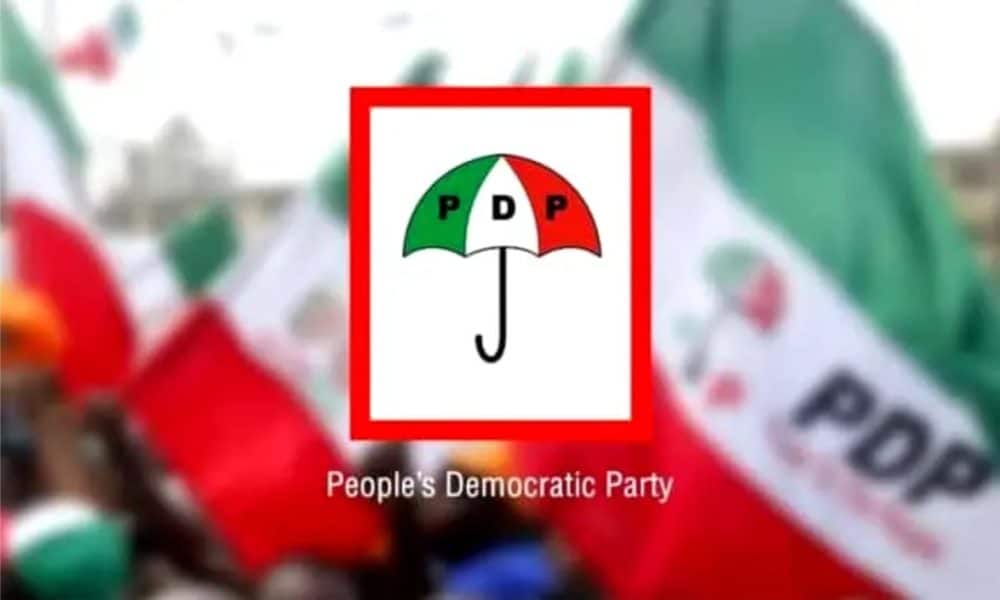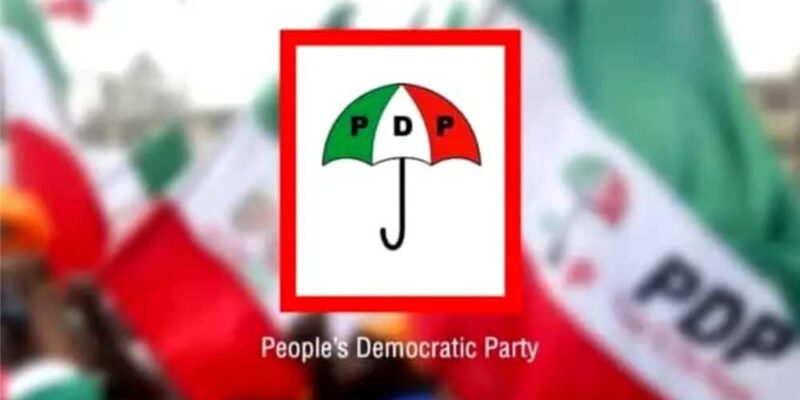
A major constitutional battle is unfolding in Nigeria as 11 governors elected on the platform of the Peoples Democratic Party (PDP) have dragged President Bola Ahmed Tinubu to the Supreme Court over the declaration of a state of emergency in Rivers State and the suspension of its elected officials.
In a bold move, the PDP governors are challenging what they describe as an unconstitutional takeover of a state government by the President, who on March 18, 2025, announced a state of emergency in Rivers and suspended Governor Siminalayi Fubara, Deputy Governor Ngozi Odu, and all members of the Rivers State House of Assembly. In their place, President Tinubu appointed Vice Admiral Ibok-Ete Ibas (retd.) as the sole administrator to oversee the state’s affairs for an initial period of six months.
The governors of Adamawa, Enugu, Osun, Oyo, Bauchi, Akwa Ibom, Plateau, Delta, Taraba, Zamfara, and Bayelsa, who are parties to the suit marked SC/CV/329/2025, are demanding a judicial interpretation of several constitutional provisions, including Sections 1(2), 5(2), 176, 180, 188, and 305 of the 1999 Constitution. They argue that the President has no constitutional authority to suspend democratically elected state officials and replace them with an unelected individual, regardless of any emergency proclamation.
To strengthen their case, the governors have assembled a high-profile legal team, including seven Senior Advocates of Nigeria (SANs): Bolaji Ayorinde, Eyitayo Jegede, Kamaldeen Ajibade, J.A. Mumuni, Musibau Adetunbi, Samuel Atung, and Yunus Abdulsalam. Also on the team are experienced attorneys M.S. Atolagbe, Ezenwa Ibegbunam, Chiamaka Anagu, Olakunle Lawal, Abduljalil Musa, and H.A. Adeleke.
The legal questions raised in the suit include whether the President’s actions are consistent with the constitutional framework of federalism, which guarantees the autonomy of state governments and the separation of powers. The governors are also questioning the legality of the President’s threat to replicate such actions in other states under similar justifications.
Meanwhile, the Attorney General of the Federation and Minister of Justice, Lateef Fagbemi (SAN), has begun drafting the Federal Government’s response to the suit. A source within the AGF’s office confirmed that legal teams were already working on court processes as preparations intensify for what promises to be a landmark constitutional case.
While the Supreme Court has yet to fix a date for hearing, tensions continue to rise across political circles, particularly in Rivers State where opposition to the emergency rule remains strong.
In a related development, a Federal High Court in Port Harcourt has fixed May 12, 2025, for a substantive hearing in a separate suit filed by former federal lawmaker, Farah Dagogo, also challenging the President’s declaration. The suit, filed on April 9, 2025, with case number FHC/PH/CS/50/2025, is also contesting the suspension of Governor Fubara and members of the State House of Assembly.
Due to difficulties in personally serving the defendants, which include President Tinubu, Senate President Godswill Akpabio, House Speaker Tajudeen Abass, and the appointed Sole Administrator, Vice Admiral Ibok-Ete Ibas (retd.), the court granted an application for substituted service. Justice Adamu Turaki Mohammed ruled that all court processes be delivered through DHL to the defendants’ known addresses, including the Presidential Villa and the National Assembly complex.
Amidst the legal storm, the House of Representatives has moved to assume legislative responsibility for Rivers State by constituting an ad-hoc committee. The committee, led by House Leader Prof. Julius Ihonvbere and co-chaired by Minority Whip, will oversee the implementation of emergency regulations and ensure that governance in the state remains within the bounds of constitutional order. Other members include prominent lawmakers such as Idris Wase, Muktar Betara, Abiodun Faleke, Oluwole Oke, and Etinosa Amadi.
The House emphasized that the emergency proclamation underwent thorough legislative scrutiny before being approved and amended to strengthen democratic safeguards, including the National Assembly assuming oversight responsibility instead of the Federal Executive Council.
In the face of mounting political tension, former Bayelsa State Governor and current Senator, Seriake Dickson, paid a solidarity visit to the suspended Governor Fubara. He praised Fubara’s calmness amid the political turbulence and urged the people of Rivers to remain peaceful. Dickson, who is also an Ijaw leader, warned against violent retaliation and emphasized the importance of protecting vital oil and gas infrastructure from vandalism, as such actions would only worsen the region’s environmental and economic challenges.
On a similar note, former Niger Delta militant leader and Chairman of Tantita Security Services Nigeria Limited, Government Ekpemupolo, popularly known as Tompolo, broke his silence during his 54th birthday celebration. Addressing accusations that he had remained quiet in the face of the Ijaw governor’s suspension, Tompolo reassured the Ijaw nation that he was actively engaged in efforts to resolve the crisis.
He confirmed that dialogue was ongoing between Governor Fubara and Minister Nyesom Wike, who had previously played a key role in Fubara’s emergence but has since become his major political adversary. Tompolo expressed confidence that peace would return and Fubara would reclaim his office.
“Both of them are like father and son,” he said. “Wike is angry, but he will calm down. We are already discussing, and everything that was lost will be restored. The Ijaws are not at war with President Tinubu. We believe he will bring the good we desire.”
As political and legal battles rage on, the nation watches closely. The outcome of this clash between the federal and state governments at the Supreme Court may set a significant precedent, shaping the interpretation of executive powers and the limits of federal authority in Nigeria’s democracy.

Comments